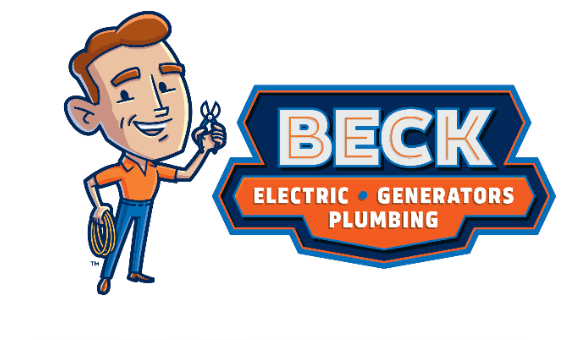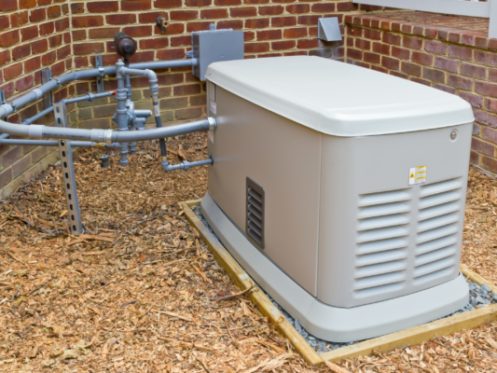Backup home generators can be a huge help during a blackout. While your neighbors may struggle to heat or cool their homes, you won’t have any issues as your generator will automatically take over as soon as the power goes out. Backup generators can be quite the investment so you obviously want to have an idea of approximately how long the unit should last to determine whether it is worth the cost. To make this easier, here is a quick overview of the average lifespan for backup generators and how to ensure your unit lasts.
Typical Lifespan of a Backup Home Generator
The expected lifespan of a backup home generator can vary quite a bit depending on the brand and model, how well it is taken care of and how much use it gets. Backup generators are typically built to run anywhere from 1,500 to 3,000 total hours. This means that a new generator will usually last for somewhere between 15 and 40 years if it is well maintained.
Backup generators should be run or “exercised” for around half an hour every week to function properly. Exercise is an essential part of generator maintenance as it makes sure that everything is properly oiled and prevents moisture build-up that could damage the unit. With weekly exercise, your generator will run for at least 26 hours per year. This means that if you only experience one or two short power outages a year, your generator could potentially last for decades provided you take care of it well. On the other hand, if you are without power for days or weeks due to a major storm, this will obviously shorten the unit’s lifespan.
How Many Hours at a Time Can a Backup Generator Run?
In theory, a backup home generator can run indefinitely if it has fuel. The reality is that you really shouldn’t run the generator for more than 12 hours at a time. The reason for this is that you need to check the fuel level at least every 12 hours when the generator is running, and this requires you to first turn off the unit and let it sit for a few minutes. You also need to make sure to change the oil every 100 hours.
The Importance of Generator Maintenance
Exercising your generator weekly is essential for keeping the unit in good shape and ensuring it has no issues that could prevent it from working when you need it. Some manufacturers only recommend monthly testing, but we always tell clients to test their units weekly just to be safe. After all, you don’t want to find yourself in a situation where the power goes out and your generator won’t start.
Most newer generators let you schedule the exercise in advance by choosing the day, time, and frequency. For older generators, you may need to manually turn the unit on. This is done by switching off the main circuit that controls the power coming into the house. As soon as the generator detects that the power is off, it will automatically kick in and should start within a few minutes at most.
After the generator turns on, you should monitor it to make sure there are no alarms or error codes and that everything is working as it should. Pay careful attention to any signs of leaks, excessive exhaust smoke, loud noises, or anything else that is unusual. You should also check the oil pressure and temperature gauges to make sure they are within the normal operating range. You’ll also want to go into the house and check to see that all your appliances are powered and working properly. If everything is still fine after 30 minutes, you can switch the power on, and the generator will automatically shut off.
If you notice anything unusual when the unit is running, you should immediately contact an electrician to have the unit inspected. Otherwise, you run the risk of the unit not starting or suddenly dying when the power goes out and you need it.
In addition to exercising the unit weekly, you should also have it professionally serviced at least once a year. You may need to have your generator serviced more often if it gets lots of use or if you’re not comfortable changing the oil yourself.
Generator Installation, Maintenance and Repair Experts
If you’re considering a backup generator, our team at Beck Electric, Generators & Plumbing can help you choose the best unit and ensure that it is installed correctly. We can also handle your maintenance and repair needs. Our electricians work on both residential and commercial generators, and we service units from any manufacturer. We also install, maintain and repair other electrical equipment including smart home technology, whole-home surge protectors, and EV charging stations. Give us a call today if you have any questions about backup generators or need to schedule a service appointment.






